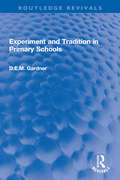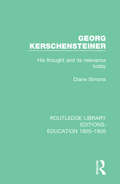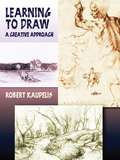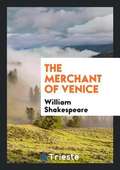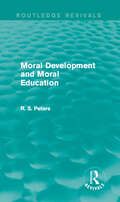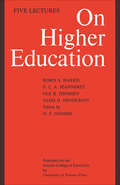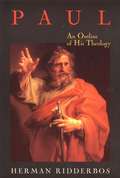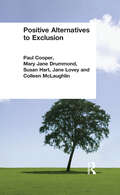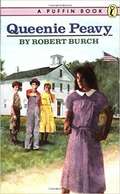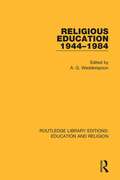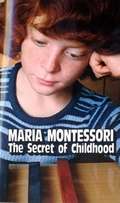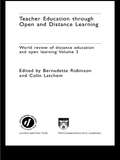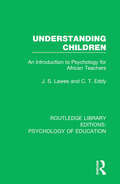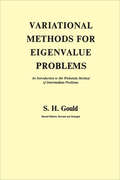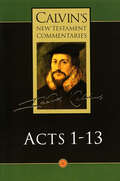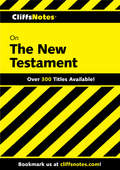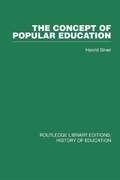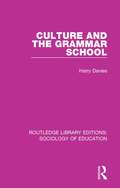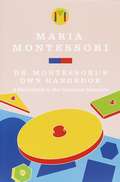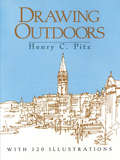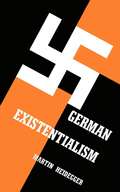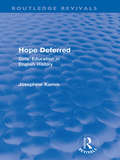- Table View
- List View
Experiment and Tradition in Primary Schools (Routledge Revivals)
by D.E.M. GardnerFirst published in 1966, Experiment and Tradition in Primary Schools was written to provide an account of the author’s pioneering study of the attainment of young children in schools where the curriculum was shaped by their spontaneous interests. The book describes the findings of Gardner’s work and assesses them in detail. It will have lasting relevance for those with an interest in the history of education and the development of education in infant and junior schools.
Georg Kerschensteiner: His Thought and its Relevance Today (Routledge Library Editions: Education 1800-1926 #14)
by Diane SimonsThis book, first published in 1966, is an introduction to the life and work of Georg Kerschensteiner, the pioneer of the modern German system of vocational education, a system which is largely responsible for Germany’s remarkable industrial recovery and advancement after the Second World War. This title will be of interest to students of education and history.
The Haphazard Gourmet
by Richard GehmanBeing a Carelessly Compiled, Aimless, Alternately Infuriating and Ingratiating Compendium of Recipes, Personal Reminiscences, and Occasional Jokes Recalled with Affection, More Or Less, by Richard Gehman from Good and Bad Times in His Life, Inspired by Le Grand Dictionnare de Cuisine
The Homework Caper
by Joan M. LexauDid someone steal Bill's Homework? Instead he's got a strange paper with numbers scribbled on it. His friend, Ken, helps him find out where the wrong paper is from and what's going on. A little sister who feels left out is involved. An easy first reader with pictures described.
Learning to Draw: A Creative Approach (Dover Art Instruction)
by Robert KaupelisTeachers, students, and amateur artists will all benefit from the advice of this esteemed educator and fine artist whose book, as described by a colleague, is "a cause célèbre for art education, not only because it meets the urgent professional need, but also because it combines artistic, aesthetic, and instructional considerations in a way which is significantly different from any other text."Encouraging teachers and students to use his suggestions in ways they feel most appropriate, the author (an expert guide and teacher) offers sound advice on methods and techniques for artists at all levels. Using the lessons and methods he employed over the years as an instructor, Kaupelis focuses on solving the problems common to many illustrators, among them successfully developing perspective, contour and modeled drawing, and drawing from memory and projected images. A splendid blend of instruction, analysis, and insights, this volume--one of the most widely read art instruction texts--deserves a place on the shelves of instructors and serious students of art.
The Merchant Of Venice
by Shakespeare Edited By A. W. Verity" This book is meant for educational and learning purposes. The author(s) of the book has/have taken all reasonable care to ensure that the contents of the book do not violate any existing copyright or other intellectual property rights of any person in any manner whatsoever. In the event the author(s) has/have been unable to track any source and if any copyright has been inadvertently infringed, please notify the publisher in writing for corrective action."
Moral Development and Moral Education (Routledge Revivals)
by R. S. PetersFirst published in 1981, this collection of essays was taken from Peters’ larger work, Psychology and Ethical Development (1974) in order to provide a more focused volume on moral education for students. Peters’ background in both psychology and philosophy makes the work distinctive, which is evident from the first two essays alone: ‘Freud’s theory of Moral Development in Relation to that of Piaget’ and ‘Moral Education and the Psychology of Character’. He also displays balance in his acceptance that reason and feeling are both of great importance where the subject of moral education is concerned. Although written some time ago, the book discusses issues which are still of considerable interest and importance today.
On Higher Education: Five Lectures
by D. F. DadsonDuring the session of 1964-65, the Ontario College of Education sponsored this series of lectures on Higher Education. The first two lectures in the volume, by Robin Harris, Principal of Innis College, and Professor of Higher Education are entitled "The Establishment of a Provincial University in Ontario" and "The Evolution of a Provincial System of Higher Education in Ontario." They provide a full and illuminating account of their subjects which will be found invaluable for reference. Chancellor F.C.A. Jeanneret offers a gracious and impressive tribute to one of the leading figures in Canadian university history in "The Contribution of Sir Robert Falconer to Higher Education." Ole B. Thomsen, Secretary, Danish Ministry of Education, discusses one of the most vital issues in higher education today in "Relationships between Governments and Universities: A Danish View" Professor Algo Henderson, Director, Centre for the Study of Higher Education, University of Michigan, takes up another topic of discussion in "Higher Education as a Field of Study in the University." The collection as a whole is a valuable addition to intellectual history and a stimulating contribution to discussion of university affairs today.
Paul: An Outline of His Theology
by Herman RidderbosNow back in print in a beautiful new paperback edition, this study by one of Europe's foremost New Testament scholars provides a comprehensive exposition of the teaching of the apostle Paul. Firmly grounded in a careful exegesis of the biblical text and crafted with constant reference to the wealth of scholarly study of Paul's writings, this volume is a standard for interpreters of Paul's thought and all students of the New Testament.
Positive Alternatives to Exclusion
by Paul Cooper, Mary Jane Drummond, Susan Hart, Jane Lovey and Colleen McLaughlinPositive Alternatives to School Exclusion looks at what schools can do to build more harmonious communities and engage students - particularly those at risk of exclusion - more productively in all areas of school life. It describes the Positive Alternatives to School Exclusion Project, a multi-phase, collaborative initiative based at the School of Education, University of Cambridge.Drawing on the perspectives of staff and pupils, the authors provide detailed case studies of the approaches and strategies being adopted in a variety of settings (primary, secondary and FE) to foster inclusion and reduce and prevent exclusion. It also identifies a number of different frameworks, drawn from the case studies, which can be used by practitioners working in other settings to support their own reflection and development work. Particular importance is placed, throughout the book, on valuing the domain of personal experience in the life of the school community. The authors explore this theme in detail, suggesting ways in which it might become a priority focus of further development work in schools.
Queenie Peavy
by Robert BurchQueenie Peavy is the worst troublemaker at school and the best shot in Georgia - with her father in jail, why shouldn't she be angry? But Queenie wonders what would happen if she tried to behave herself, just for one day...
Religious Education 1944-1984 (Routledge Library Editions: Education and Religion #10)
by A. G. WedderspoonFirst published in 1966. Under the 1944 Act, the only compulsory school subject was Religious Instruction. Books and research findings revealed a critical situation, and many educationalists, churchmen and parents believed a review of the problem was vital. This book presents the considered views of a group of distinguished educationalists who met in London in April 1965 under the auspices of the Institute of Education. It also includes the comments by members of Parliament, church leaders, university and school teachers who were present and the whole contains a frank and valuable expression of expert opinion upon a very controversial subject.
Secret Of Childhood
by María MontessoriMaria Montessori describes the child with warmth and the exactness of a scientist. She also discusses the array of materials and techniques needed to release his learning potential.
Teacher Education Through Open and Distance Learning: World review of distance education and open learning Volume 3 (World Review Of Distance Education And Open Learning Ser. #Vol. 4)
by Colin Latchem Bernadette RobinsonHow can open and distance learning and information and communications technology (ICT) provide us with more - and better - teachers?Open and distance learning is increasingly used in teacher education in developing and developed countries. It has the potential to strengthen and expand the teaching profession of the twenty-first century and to help achieve the target of education for all by 2015. Teacher Education Through Open and Distance Learning examines the case for using open and distance learning and ICT to train our educators. It describes and analyses the ways in which these methods and technologies are used for:*initial teacher training and continuing professional development*training principals and school managers*training those who provide non-formal adult and community education*communities of practice and sharing of knowledge and ideas within the teaching professionIt also discusses the policy-making, management, technology, costing, evaluation and quality assurance aspects of this work. The contributors are outstanding practitioners in the field. The first review in over a decade, Teacher Education Through Open and Distance Learning draws on wide-ranging and international experience to summarise the strengths and weaknesses of new approaches to the education of teachers. It offers invaluable guidance to policymakers, planners, headteachers and teachers.
Understanding Children: An Introduction to Psychology for African Teachers (Routledge Library Editions: Psychology of Education)
by J.S. Lawes C.T. EddyOriginally published in 1966, the two authors combined skill in their subject with experience of teaching it to students in Africa and elsewhere. Their aim was threefold. First and most important to emphasise to teachers in training how essential it is to regard children as individuals, each with a character and problems resulting from heredity and environment. Secondly, to give the teacher enough knowledge of psychology to help him to understand each pupil’s learning process and behaviour. Thirdly, to stimulate the teacher to observation, enquiry and thought. Each chapter ends with suggested exercises, discussion points and reading references. The book was one of a series offered to Africa teachers in training. The series was designed to help those who were called upon to teach the many subjects of the primary school curriculum or two or more subjects with junior forms of secondary schools. It was dedicated to the proposition that giving a good basic education to a country’s children is vital to its development programme.
Variational Methods for Eigenvalue Problems: An Introduction to the Weinstein Method of Intermediate Problems (Second Edition) (Mathematical Expositions #10)
by S. H. GouldThe first edition of this book gave a systematic exposition of the Weinstein method of calculating lower bounds of eigenvalues by means of intermediate problems. From the reviews of this edition and from subsequent shorter expositions it has become clear that the method is of considerable interest to the mathematical world; this interest has increased greatly in recent years by the success of some mathematicians in simplifying and extending the numerical applications, particularly in quantum mechanics. Until now new developments have been available only in articles scattered throughout the literature: this second edition presents them systematically in the framework of the material contained in the first edition, which is retained in somewhat modified form.
Acts 1-13 (Calvin’s New Testament Commentaries (CNTC))
by John CalvinThis is a print on demand book and is therefore non- returnable. This volume is one of twelve classic commentaries by John Calvin, theologian par excellence of the Reformation, whose expositions of Scripture remain as relevant as ever. Edited by David W. Torrance and Thomas F. Torrance, these twelve commentaries on the New Testament bring Calvin's authoritative voice to life in clear contemporary English. The translations all strive to retain the close coherence of Calvin's ideas and characteristic images while remaining faithful to the Latin text — doing full justice to the Reformer's qualities as one of history's finest expositors of the Word of God.
CliffsNotes on The New Testament
by Charles H PattersonThe original CliffsNotes study guides offer expert commentary on major themes, plots, characters, literary devices, and historical background.In CliffsNotes on The New Testament, you follow along what's often called "The Greatest Story Ever Told" as it recounts the teachings of the prophet Jesus of Nazareth, who lived 2,000 years ago. It is a rich source of poetry and knowledge and is the rock upon which Christianity stands.This study guide carries you along on Jesus' incredible journey by providing summaries and commentaries on The New Testament of the Bible. Other features that help you study includeAn introduction to the New TestamentThe historical background of ChristianityAn outline of the life of JesusA selected bibliography that leads you to more great resourcesClassic literature or modern-day treasure — you'll understand it all with expert information and insight from CliffsNotes study guides.
The Concept of Popular Education
by Harold SilverOriginally published 1965. This reprints the 1977 edition which included a new introduction. From the starting point of "popular" charity education, the book traces the dynamic of ideological and social change from the 1790s to the 1830s in terms of attitudes to education and analyzes the range of contemporary opinions on popular education. It also examines some of the channels through which ideas about education were disseminated and became common currency in popular movements.
Culture and the Grammar School (Routledge Library Editions: Sociology of Education #18)
by Harry DaviesThis book, first published in 1965, discusses the nature of the grammar school, its curriculum and teaching methods, comparisons with sixth form education, and the change in its organisation and attitudes during a time of rapid social change in 1960s Britain. This title will be of interest to students of history, sociology and education.
Dr. Montessori's Own Handbook
by Maria MontessoriA short, illustrated guide to the use of Montessori classroom materials. Describes how to set up a "children's house" - an environment for learning where children can be their own masters.From the Trade Paperback edition.
Drawing Outdoors
by Henry C. PitzNoted artist, author and educator shows how to draw every major outdoor subject — land, greenery, skies, building, people, cities, and more — in all the major drawing media: pencils, pen and ink, brush and ink, felt pens, charcoal, Rembrandt to Wyeth. Over 100 illustrations.
Essays on Education in the Early Republic
by Frederick Rudolph Benjamin Rush Noah Webster Samuel Harrison Smith Amable-Louis-Rose De Lafitte Du Courteil Samuel Knox Robert Coram Simeon DoggettOnly a relatively few colonial Americans received any formal education beyond the elementary subjects. Secondary schools were rare. Private tutors and the local clergyman carried the main burden of college preparation. There were public secondary schools in New England, a few private schools in the middle colonies, and even fewer in the South--all of them concentrating on the Latin that led to college and a career in one of the learned professions. Nine colleges of varying degrees of stability and age carried on in the New World the collegiate traditions of Oxford and Cambridge. Several of these institutions were barely able to prove their existence before the American Revolution gave a new twist to their fortunes.
German Existentialism
by Martin Heidegger“On the day of German Labor, on the day of the Community of the People, the Rector of Freiburg University, Dr. Marin Heidegger, made his official entry into the National Socialist Party.” And so begins one of the most controversial philosophical texts available today. Heidegger, a German Nationalist and proud Nazi, thoroughly examines the history, the philosophy, and the rise to power of the Nazi movement in Germany. Martin Heidegger’s distinguished Italian colleague, Professor Benedetto Croce, said of his German contemporary, “This man dishonors philosophy and that is an evil for politics too.” Croce’s severe rebuke was not singular at the time when Hitlerism was rampant over Europe. It is true that among the almost one thousand professional philosophers of Germany and Austria only very few actively opposed National Socialism. On the other hand, no one degraded his historic profession in the manner Heidegger did, by becoming a spokesman for National Socialism and attempting to mold his theories into one pattern with Hitlerism. Heidegger’s contribution to the growth and development of National Socialism was immense. In this small anthology Dr. Runes endeavors to point to the utter confusion Heidegger created by drawing, for political and social application of his own existentialism metaphysics, upon the decadent and repulsive brutalization of Hitlerism. Martin Heidegger was a philosopher most known for his contributions to German phenomenological and existential thought. Heidegger was born in rural Messkirch in 1889 to Catholic parents. While studying philosophy and mathematics at Albert-Ludwig University in Freiburg, Heidegger became the assistant for philosopher Edmund Husserl. Influenced by Husserl, Kierkegaard, and Nietzsche, Heidegger wrote extensively on the quality of Being, including his opus Being and Time. He served as professor of philosophy at Albert-Ludwig University and taught there during the war. In 1933, Heidegger joined the National Socialist German Worker’s (or Nazi) Party and expressed his support for Hitler in several articles and speeches. After the war, his support for the Nazi party came under attack, and he was tried as a sympathizer. He was able to return to Albert-Ludwig University, however, and taught there until he retired. Heidegger continued to lecture and write until his death 1973.
Hope Deferred: Girls' Education in English History (Routledge Revivals)
by Josephine KammHope Deferred, initially published in 1965 traces the history of girls’ education from Anglo-Saxon England to modern times, telling the story largely through the leading personalities whose opinions and prejudices shaped this history. It outlines the progress of popular education and the work of the pioneers who fought to bring girls’ education at every level into line with boys’; and it carries the story into the second half of the twentieth-century to discuss the problem of whether girls are really receiving the right kind of education.
